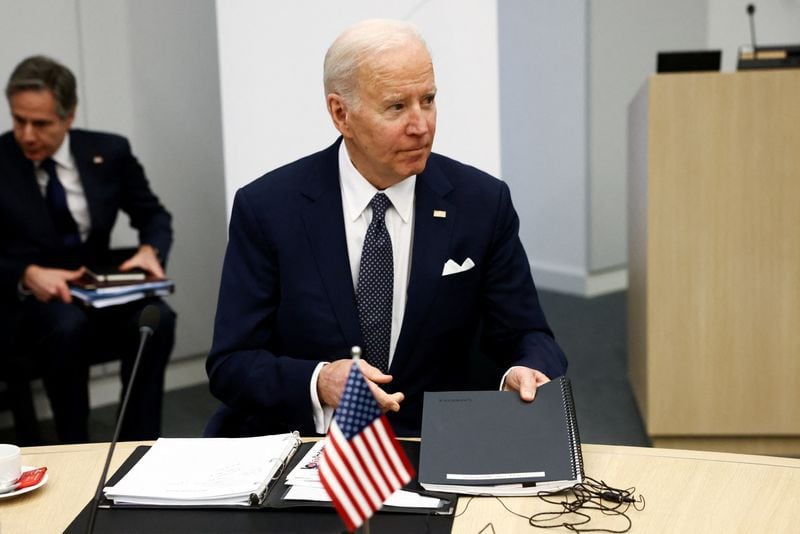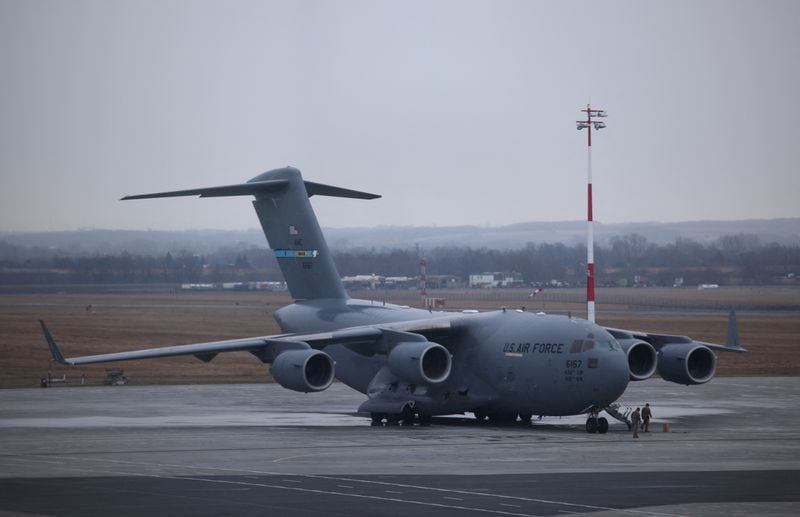
The government of the President of the United States, Joe Biden, presented on Monday a budget bill of 5.79 trillion dollars, with increased defense spending coinciding with the war in Ukraine, which it wants to finance by raising taxes on corporations and the richest.
In its 277-page proposal, the White House calls for Congress to approve for fiscal year 2023, which begins next October, a budget of $5.79 trillion, up from $5.85 billion in 2022.
In total, the US government wants to allocate $813 billion to defense, an increase of 4% over fiscal year 2022, of which $31 billion would be in new spending.

For the war in Ukraine and to strengthen NATO's eastern flank, the Biden Administration seeks to allocate $6.9 billion in order to “counter” the Russian invasion of Ukrainian territory.
In a statement, Biden called for continued spending to respond “to the aggression” of Russian President Vladimir Putin on Ukraine, “with US support for Kiev's economic, humanitarian and security needs.”
At a subsequent press conference, the president stressed that the increase in defense spending is due to the fact that “the world has changed” due to competition from countries such as China and Russia, which will require investments against cyberattacks and new capacities in space, including hypersonic missiles.
“This will be one of our biggest investments in national security,” Biden said.
The US Department of Defense's 'number two', Kathleen Hicks, delved into that point, stating that China is the main strategic competitor of the United States and has branded Russia a “serious threat to world order” because of its “unprovoked invasion” and its “vicious tactics.”

At the press conference, Hicks noted that the US strategy will be based on “deterrence,” with China as its “most important strategic competitor.”
“The People's Republic of China has the military, economic and technological potential to challenge the international system and our interests within it,” he said, adding that other “persistent threats” are North Korea, Iran and “violent extremist organizations.”
“Defend the homeland; give way to the growing multi-domain threat posed by China; deter strategic attack; deter aggression while preparing to prevail in conflict when necessary; prioritizing China's challenge in the Indo-Pacific; Russia's challenge in Europe and building a resilient joint force and a defense ecosystem,” he detailed on US priorities.
“Similarly, our budget request makes investments that support the US European Command and deepen our strong commitment to NATO. We will optimize the response capacity of the Joint Force, provide assistance to Kiev through the Ukrainian Security Assistance Initiative and strengthen cooperation programmes,” he stressed.

Hicks also explained that the budget “provides the Department with resources to sustain and strengthen the Joint Force,” as well as “deploy credible forces for combat today” and at the same time prepare “for the threats of the future.”
(With information from EFE and EuropaPress)
Keep reading:
Últimas Noticias
Debanhi Escobar: they secured the motel where she was found lifeless in a cistern
Members of the Specialized Prosecutor's Office in Nuevo León secured the Nueva Castilla Motel as part of the investigations into the case

The oldest person in the world died at the age of 119
Kane Tanaka lived in Japan. She was born six months earlier than George Orwell, the same year that the Wright brothers first flew, and Marie Curie became the first woman to win a Nobel Prize

Macabre find in CDMX: they left a body bagged and tied in a taxi
The body was left in the back seats of the car. It was covered with black bags and tied with industrial tape
The eagles of America will face Manchester City in a duel of legends. Here are the details
The top Mexican football champion will play a match with Pep Guardiola's squad in the Lone Star Cup

Why is it good to bring dogs out to know the world when they are puppies
A so-called protection against the spread of diseases threatens the integral development of dogs



